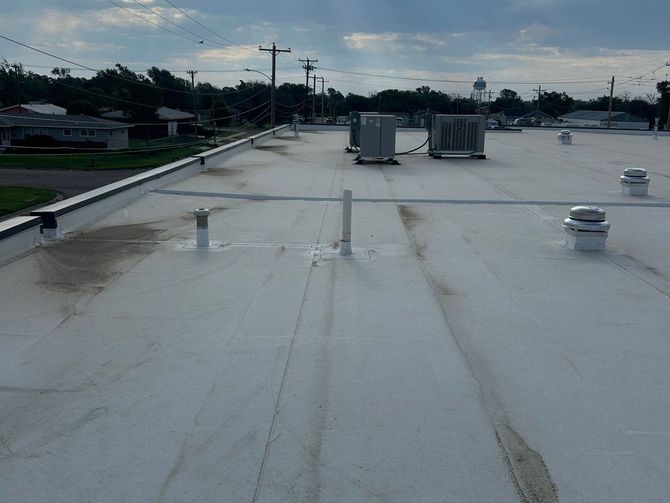Metal roofing is increasingly popular among homeowners and businesses alike, and it’s easy to see why. With remarkable durability and impressive energy savings, it stands as a superior roofing option. Whether you’re constructing a new home or replacing an old roof, understanding the benefits of metal roofing is key. This article explores why metal roofing is the best choice for both durability and energy efficiency.
Benefits of Metal Roofing for Commercial and Residential Properties
Metal roofing offers a wide range of benefits for both residential and commercial buildings. One of the most notable is its durability. Metal roofs can withstand extreme weather conditions, including heavy rain, snow, hail, and even high winds. Unlike asphalt shingles, which can deteriorate over time, metal roofs are resistant to cracking, warping, and corrosion, making them an excellent long-term investment for your property.
Another great benefit is the low maintenance required by metal roofing. It’s built to last for decades—sometimes up to 50 years or longer—and requires fewer repairs than other roofing materials. This longevity makes metal roofs a solid investment, saving you money on long-term maintenance.
How Metal Roofing Contributes to Energy Savings
One of the most compelling reasons to choose metal roofing is its energy efficiency. Metal roofs reflect sunlight, which helps keep your property cooler during the summer months. This reflective quality reduces the need for air conditioning, resulting in lower energy bills. In fact, studies have shown that metal roofs can reduce cooling costs by up to 25%, especially in hot climates.
Moreover, metal roofing provides excellent insulation. By keeping heat in during the winter and out during the summer, it helps maintain a comfortable indoor temperature, reducing the need for heating and cooling systems. This can lead to substantial energy savings over time.
Steel vs. Aluminum: Which Metal is Right for Your Roof?
When selecting a metal roof, the two most common materials are steel and aluminum. Each has its advantages, depending on your needs and the environment in which the roof will be installed.
Steel Roofing
Steel is known for its strength and affordability. It’s a popular choice for commercial buildings due to its robustness and ability to withstand harsh weather conditions. Steel is also less prone to denting, making it a good option for areas with frequent hailstorms. However, steel can be susceptible to rust if not properly treated or maintained, so it’s important to ensure it has a protective coating.
Why Choose Aluminum Roofing?
Aluminum roofing is a lightweight and corrosion-resistant option, perfect for coastal areas or places with high humidity. Its reflective properties also make it more energy-efficient. While aluminum is typically more expensive than steel, its resistance to corrosion and long lifespan justify the additional cost.
How Metal Roofs Offer Long-Term Value and Durability
Though metal roofing might come with a higher initial cost compared to traditional materials, its long-term value far exceeds other options. With a lifespan of 40 to 70 years, metal roofs outlast asphalt shingles. The savings on energy bills and maintenance costs quickly offset the upfront price.
Metal roofs can also enhance the value of your property. They are often associated with durability and energy efficiency, making your property more attractive to potential buyers.
Conclusion: Why Metal Roofing Should Be Your Top Choice
In conclusion, metal roofing is a wise choice for any property, offering unparalleled benefits like durability, energy efficiency, and long-term value. Whether you opt for steel or aluminum, you’re investing in a roofing system that will provide lasting protection and savings.
Ready to upgrade your roof with metal? Get in touch with us today for a consultation and let us guide you in selecting the perfect roofing option for your property.
#MetalRoofing #EnergyEfficientRoofing #DurableRoofing #SteelRoofing #AluminumRoofing #RoofInstallation #RoofingMaterials #LongTermValue
